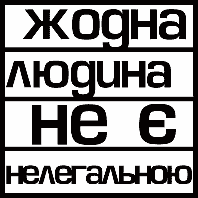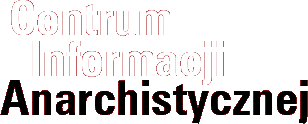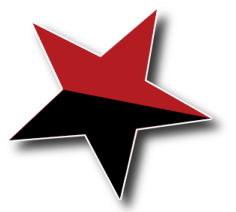Na Ukrainie trwa obóz antygraniczny
 W okolicach Użgorodu trwa pierwszy międzynarodowy obóz antygraniczny na Ukrainie. W obozie uczestniczy ponad 300 osób z wielu różnych krajów, m.in z Polski, Czech, Słowacji, Rumunii, Grecji, Białorusi, Rosji, Finlandii, Nowej Zelandii, USA, Czeczenii, Irlandii, Wielkiej Brytanii, Niemiec, Ukrainy, Holandii, Hiszpanii, Belgii i innych krajów. Uczestniczą również uchodźcy z Uzbekistanu i Kongo, którzy mieszkają na Ukrainie.
W okolicach Użgorodu trwa pierwszy międzynarodowy obóz antygraniczny na Ukrainie. W obozie uczestniczy ponad 300 osób z wielu różnych krajów, m.in z Polski, Czech, Słowacji, Rumunii, Grecji, Białorusi, Rosji, Finlandii, Nowej Zelandii, USA, Czeczenii, Irlandii, Wielkiej Brytanii, Niemiec, Ukrainy, Holandii, Hiszpanii, Belgii i innych krajów. Uczestniczą również uchodźcy z Uzbekistanu i Kongo, którzy mieszkają na Ukrainie.
Aktualizacja 18 sierpnia: Wczoraj około 250 osób przemaszerowało przez Użgorod z hasłami "świat bez granic" i "zamknąć Pawszyn" (Pawszyn to obóz internowania uchodźców). Część osób udała się do samego Pawszyna, by tam kontynuować protest. Policja nie interweniowała.
W ramach obozu odbył się szereg warsztatów dotyczących polityki migracyjnej UE oraz inne niezwiązane z polityką migracyjną tematy, m.in. o kampanii przeciw tarczy, w której uczestniczyć będą aktywiści z Polski i Czech, o szczycie NATO w Bukareszcie w kwietniu 2008 i o dynamice spotkań grupowych.
 Oprócz warsztatów odbyły się spotkania i koncerty, wystawy i pokazy filmowe o tematyce migracyjnej. Aktywiści antygraniczni pojechali do centrów internowania imigrantów, aby sprobować nawiązać z nimi kontakt (obecnie w większości są to uchodźcy z Iraku którzy próbowali wjechać na teren krajów Unii).
Oprócz warsztatów odbyły się spotkania i koncerty, wystawy i pokazy filmowe o tematyce migracyjnej. Aktywiści antygraniczni pojechali do centrów internowania imigrantów, aby sprobować nawiązać z nimi kontakt (obecnie w większości są to uchodźcy z Iraku którzy próbowali wjechać na teren krajów Unii).
Obóz będzie trwać do 20 sierpnia więc spodziewamy się jeszcze akcji protestacyjnych. Jednocześnie na obozie trwa międzynarodowe spotkanie Food Not Bombs.






